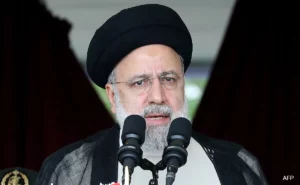Israel-Hezbollah War | What Does Hezbollah Mean

Brazil, South Africa, India, Pakistan, terrorism
Overview of the Israel-Hezbollah Conflict
The Israel-Hezbollah conflict has deep historical roots, primarily stemming from the Lebanese Civil War (1975-1990) and the subsequent Israeli invasion of Lebanon in 1982. Hezbollah, a Shiite militant group and political party, emerged during this tumultuous period with the objective of resisting Israeli occupation and establishing an Islamic republic in Lebanon. The group’s name, Hezbollah, translates to “Party of God” in Arabic and signifies its ideological foundation rooted in Shiite Islam and Iranian influence.
Historical Context
Hezbollah was founded in the early 1980s, backed by Iran’s Islamic Revolutionary Guard Corps (IRGC), to counter Israeli military presence in southern Lebanon. Initially comprising various factions opposed to Israel, it quickly grew into a significant political and military force within Lebanon, often described as a “state within a state” due to its extensive social services and military capabilities. The group has been involved in numerous violent confrontations with Israel, including the notable 2006 war triggered by Hezbollah’s cross-border raid that resulted in the abduction of Israeli soldiers.
Recent Escalations
The conflict has seen renewed intensity following the October 2023 attacks by Hamas on Israel, which prompted Hezbollah to launch retaliatory strikes against Israeli positions. Since then, exchanges of fire have escalated dramatically, with Hezbollah reportedly firing thousands of rockets into northern Israel and Israel conducting extensive airstrikes across Lebanon125. As of late September 2024, this situation has led to significant casualties on both sides and raised fears of an all-out war, although neither side has officially declared war yet5.
What Does Hezbollah Mean?
Hezbollah (Arabic: حزب الله) literally means “Party of God.” This name reflects the organization’s religious and ideological motivations. The term embodies its commitment to Shiite Islamic principles and its opposition to Western influence in the Middle East, particularly that of Israel. Hezbollah’s formation was a direct response to perceived injustices against Shiite Muslims in Lebanon and the broader Arab world.
Ideological Foundations
The ideological underpinnings of Hezbollah are deeply intertwined with Iran’s revolutionary principles following the 1979 Iranian Revolution. The group views itself as a defender of Shiite interests and a liberator against foreign occupation. Its narrative often emphasizes resistance against what it perceives as aggression from Israel and support for Palestinian rights23.
Political Role
Beyond its military activities, Hezbollah participates actively in Lebanese politics. Since its entry into national elections in 1992, it has become a formidable political force, holding seats in parliament and influencing government policies. This dual role as both a militant organization and a political party complicates the dynamics within Lebanon and its relationships with other nations13.
Conclusion
The ongoing conflict between Israel and Hezbollah remains one of the most complex geopolitical issues in the Middle East. With deep historical roots and significant implications for regional stability, understanding Hezbollah’s origins—both as a militant group and a political entity—is crucial for comprehending the broader dynamics at play in this enduring conflict. As tensions continue to rise amidst recent escalations, the potential for further violence looms large, making it imperative for observers to closely monitor developments in this volatile region.






